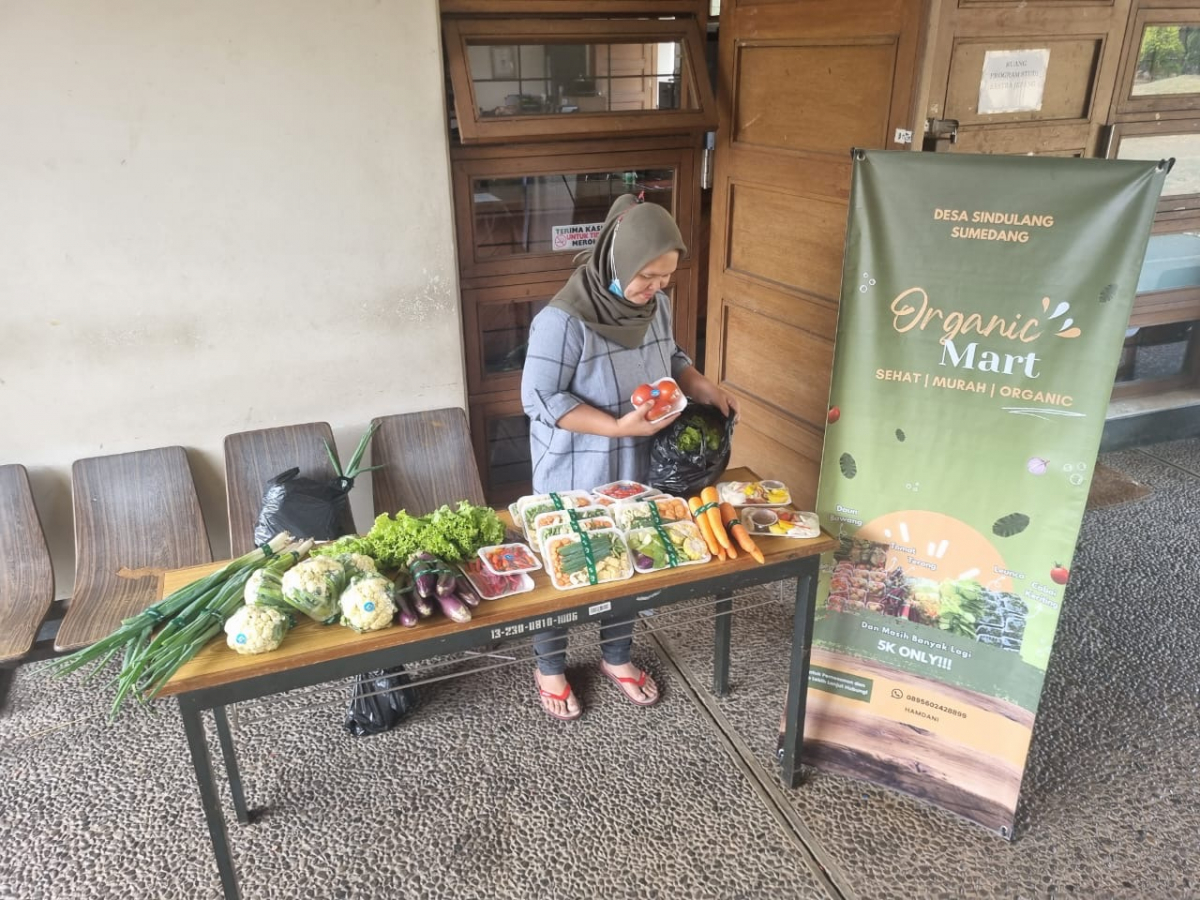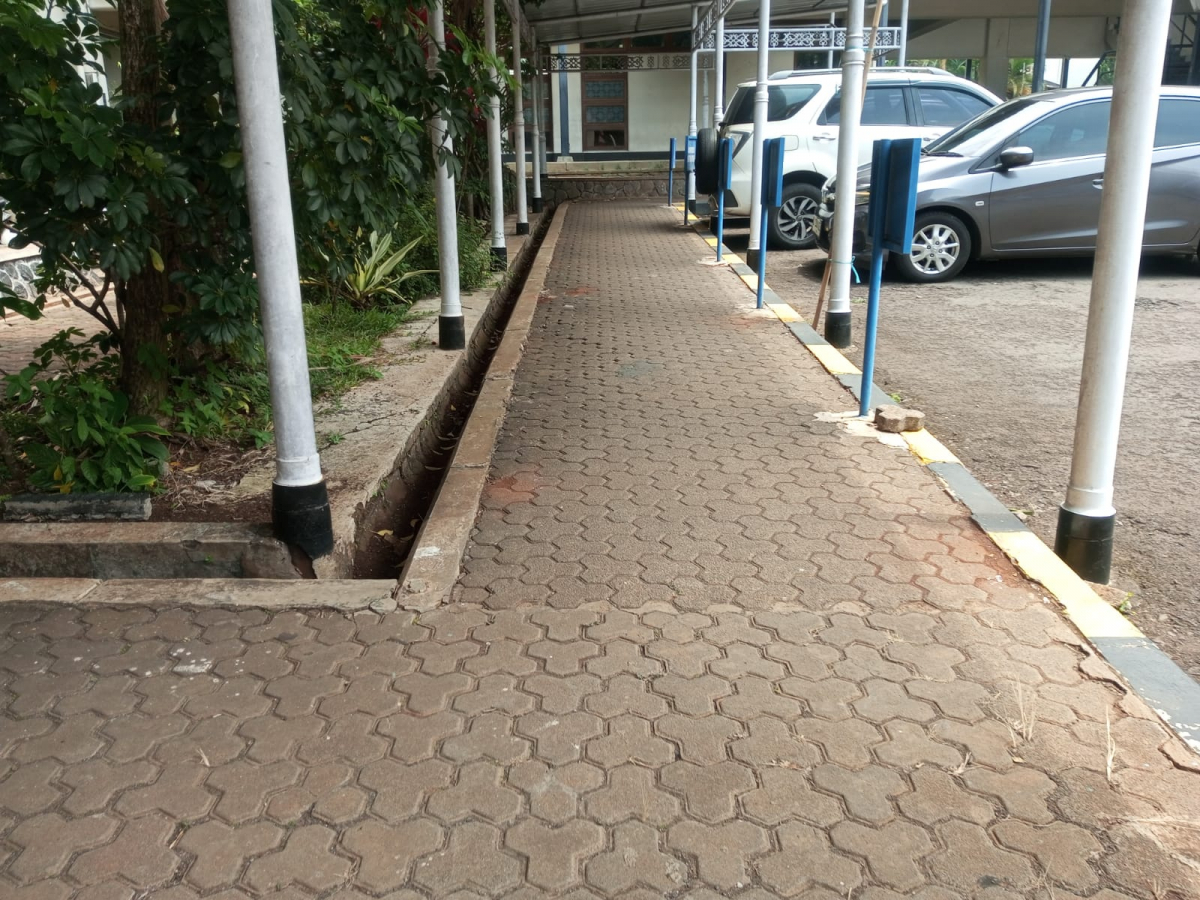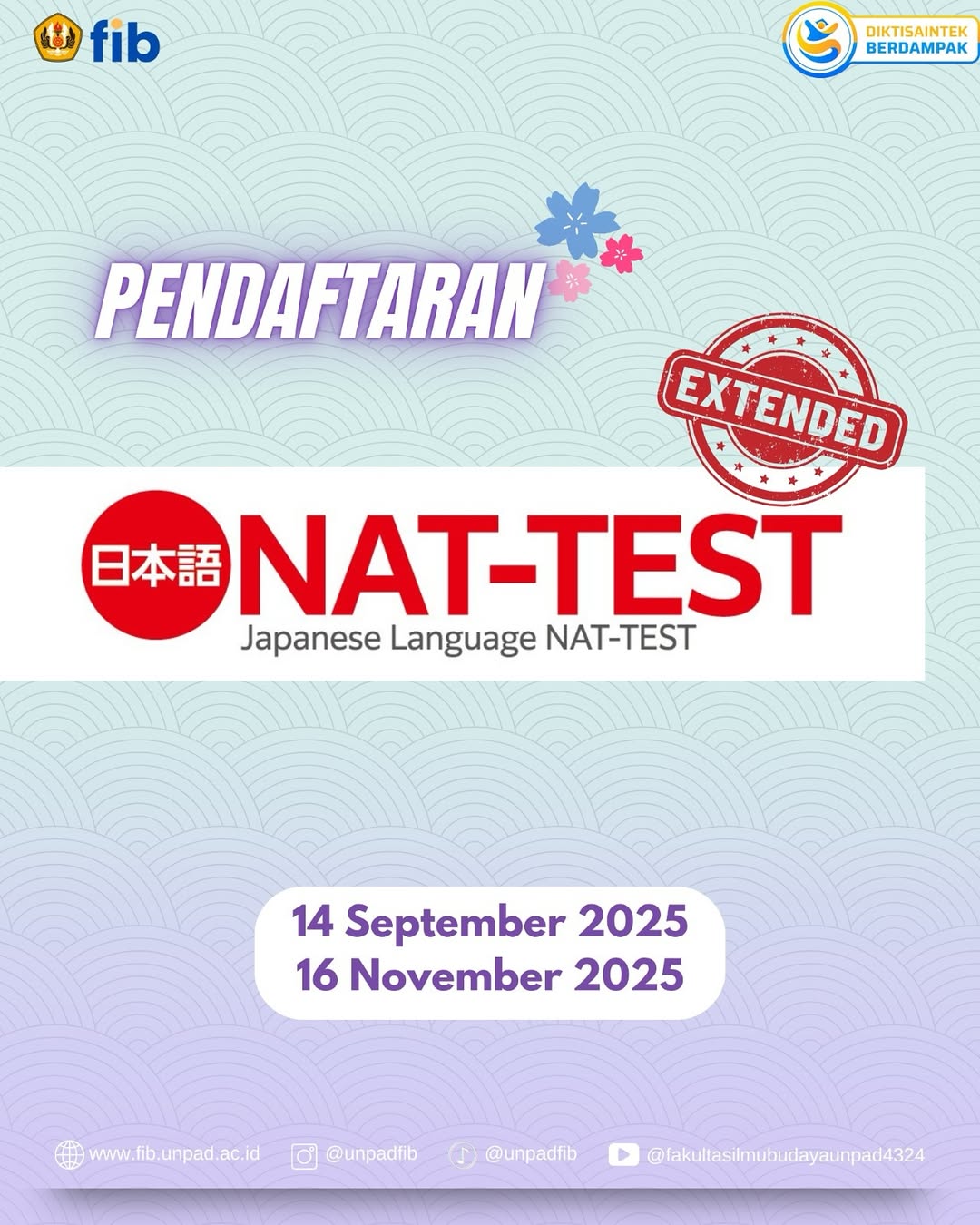Unpad KKN Team Conducts Soil and Plant Fertility Counseling to Improve Agricultural Productivity
Bandung Regency, West Java – The community service program by ideal is an activity for students or campuses to implement their knowledge and abilities to help overcome existing societal problems. On the other hand, this is also a form of implementation of the Tridharma (three main purposes) of higher education.
This was done by one of Universitas Padjadjaran’s KKN-PPM Integratif (Integrative Community Empowerment Learning Real Work Lectures) teams in Campakamulya Village, Cimaung District, Bandung Regency. The team, supervised by Prof. Dr. Ir. Mahfud Arifin, M.S., focused on the problem of village agricultural commodities as Campakmulya Village is famous for its arabica coffee and sweet potato commodities.
The team carried a theme of “Peningkatan Produktivitas Lahan Perkebunan Kopi Berdasarkan Karakteristik Tanah dan Lingkungannya” (“Improving the Productivity of Coffee Plantation Land Based on Soil and Environmental Characteristics”). In the first week of the program, the students within the team managed to find the main obstacle in the development of Campakamulya Village’s agricultural commodities. The problem was that the productivity of coffee plants under pine stands was lower than under rasamala stands. In addition, there are also other problems being faced, such as cultural preservation, disaster mitigation, dental health awareness, farming interests, and human resources.
Based on the problems they face, students divide their team into several sub-groups. There are three sub-groups with different program themes, namely Forum Diskusi Petani Kopi Campakamulya (Campakamulya Coffee Farmers Discussion Forum), Penyuluhan Pembuatan Nematisida dan Biosaka (Extension of Nematicide and Biosaka Making), and Pemetaan Status Unsur Hara Tanah di Perkebunan Kopi (Mapping the Status of Soil Nutrients in Coffee Plantations). Various students from several faculties joined the three subgroups, which are students from the Faculty of Law (Fakultas Hukum or FH), Agriculture (Fakultas Pertanian or Faperta), Economics and Business (Fakultas Ekonomi dan Bisnis or FEB), Cultural Sciences (Fakultas Ilmu Budaya or FIB), Fisheries (Fakultas Perikanan dan Ilmu Kelautan or FPIK), Agricultural Industrial Engineering (Fakultas Teknik Industri Pertanian or FTIP), Geological Engineering (Fakultas Teknologi Geologi or FTG), and Dentistry (Fakultas Kedokteran Gigi or FKG).
In subgroup one, problems were found in Arabica coffee’s pre-planting, maintenance, and post-harvest phases. This was due to inadequate agricultural facilities, pests, and diseases in coffee plants. In response, subgroup two continued the activity by counselling on nematicide and biosaka production. There were also two invited speakers at this counselling: Ir. Noor Istifadah, Mc.P, Ph.D. and representatives of the Klinik Tanaman (Klintan) Unpad. The series of activities was closed by subgroup three by making a map of the distribution of nutrient status of coffee plantations.
The whole program was closed with a seminar with two speakers, Prof. Dr. Ir. Mahfud Arifin, M.S., who related to “Increasing Coffee Plant Productivity Based on Land Conditions and Soil Fertility” and Dr. Ir. Toto Sunarto, M.P. with the material “Nematodes on Coffee Plants and How to Control Them”. The final seminar was held to maintain cooperation between coffee farmers and academics related to the problem of Puntang Coffee productivity. The final seminar was attended by the Secretary of Campakamulya Village, the Head of Ketua Lembaga Masyarakat Desa Hutan (LMDH)—Forest Village Community Organization in English—and then the Head of Ketua Tani Hutan (KTH)—Forest Farmers Association in English—and finally coffee farmers.
Based on the seminar discussion, Prof. Dr. Ir. Mahfud Arifin, M.S. said that the steep slope, shallow soil depth, and high erosion hazard cause the main problems of coffee productivity in Campakamulya Village. In addition, the village’s soil fertility is also relatively moderate. Other than that, Dr. Ir. Toto Sunarto, M.P. added that 17 parasitic nematodes are pests and diseases that have attacked the soil in the plantation area.
With the implementation of this community service program, the community is increasingly aware of the problems faced, as well as efforts to solve them. This is very important in realizing sustainable land productivity.
Writer: Maria Imanuella Dewi Sekartaji
Translator: Firda Khoirunnisa




